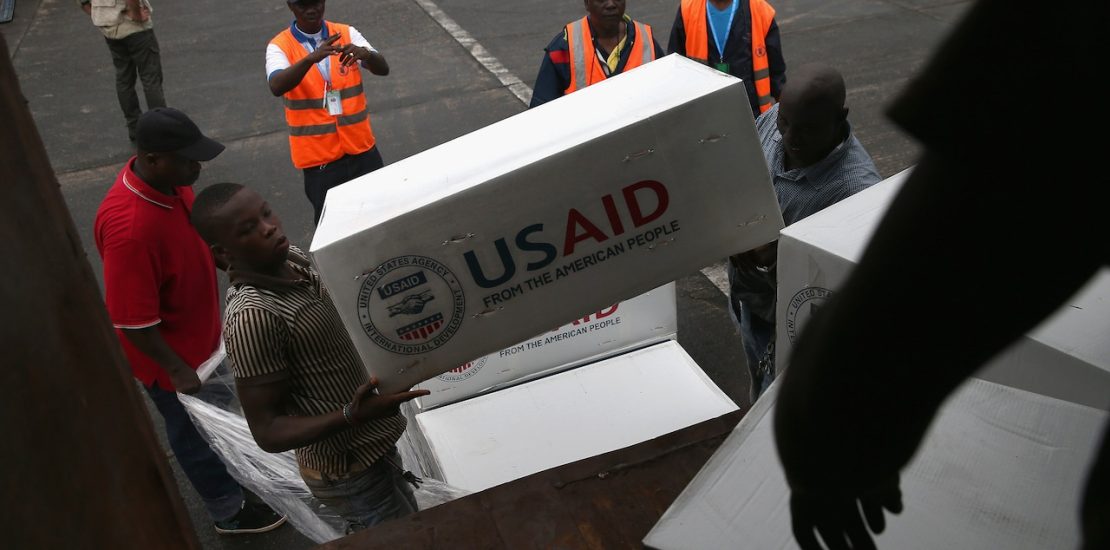- March 26, 2025
- Posted by: Regent Harbor Team
- Category: Global Economy

This is a guest opinion column
## An Abrupt Decision: The U.S. Foreign Aid Cuts
This month, the U.S. government surprisingly [announced](https://apnews.com/article/trump-usaid-foreign-aid-cuts-6292f48f8d4025bed0bf5c3e9d623c16) substantial cuts to American foreign aid projects, effectively terminating 90% of the contracts issued by the United States Agency for International Development (USAID). The results were both swift and significant, raising questions about the fate of the programs now at a standstill.
### The Ripple Effect in Alabama
In Alabama, more than [530,000 jobs](https://www.usglc.org/state-facts/alabama/) are sustained through trade, accounting for nearly 20% of all employment in the state. Noteworthy is that Alabama exported [goods worth $27.4 billion](https://www.usglc.org/state-facts/alabama/) in 2023, largely by small- and medium-sized enterprises. State-centric entities face a potential loss of [$101 million](https://www.usaidstopwork.com/usaid-state-by-state) due to the stoppage in USAID assistance.
### The Role of Global Trade in Local Prosperity
In order to grasp the true implications of U.S. foreign aid cuts, it’s imperative to understand the global trade landscape. Astonishingly, [95% of the global population](https://ustr.gov/issue-areas/economy-trade) resides outside the United States. These six billion consumers act as a considerable market for American enterprises, essential for growth and job creation. Trade depends heavily on governmental support, which is currently under threat.
### Strengthening Trade Through Foreign Assistance
Trade is a critical component in the success of American businesses. The U.S. government leverages strategic international assistance and diplomacy to stabilise foreign markets and institutions, facilitating profitable trade relationships. For instance, South Korea transformed from a war-torn nation to a robust trade partner thanks to U.S. aid. Now, American exports to South Korea are valued at an impressive [$91.3 billion](https://www.congress.gov/crs-product/IF10733). This success story illustrates the benefits of such strategic alliances.
### Foreign Aid: A Linchpin for American Businesses
However, retracting foreign aid jeopardises these crucial efforts and exposes American companies to economic turbulence overseas. Without a stable foreign market, trade becomes daunting. The North Alabama International Trade Association actively aids companies in expanding their foreign sales, but even such support cannot substitute the foundational role of government-led partnerships.
### The Risk of Ceding Ground to Global Rivals
There’s a looming fear that reduced American presence abroad will invite competitors like China to strengthen their own ties in strategic regions. As American influence wanes, these competitors would be poised to seize burgeoning opportunities, potentially sidelining U.S. interests. It’s clear: without calculated foreign assistance, America stands to lose significantly, across multiple dimensions.
### A Call for Pragmatic Reforms
While acknowledging the necessity for reforms to ensure efficient use of foreign aid, such changes should be discerning. They ought to preserve programs that unequivocally bolster the U.S. economy and its security. Alabama’s businesses and workforce hinge on the stability that foreign aid fosters. With a decisive approach, American leadership can be sustained and critical partnerships nurtured.
Anne Burkett serves as executive director of the North Alabama International Trade Association (NAITA) and chair of the Alabama District Export Council. She brings over 35 years of experience in international trade development.
